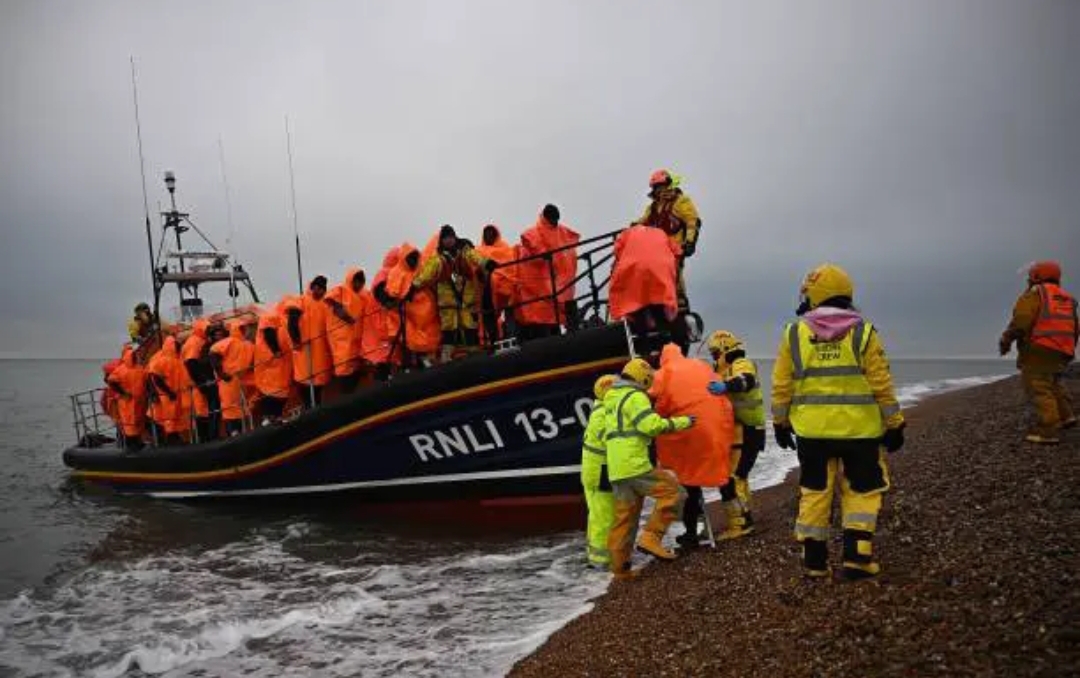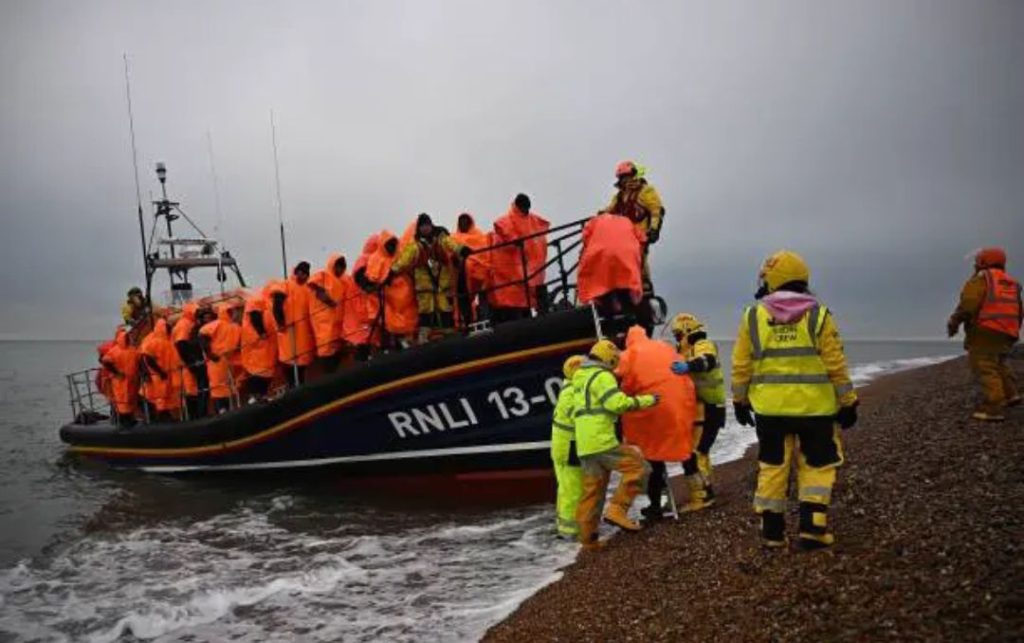
In the early hours of Sunday morning, the Channel witnessed a heartbreaking scene as a small boat attempting to cross from France to England overturned, claiming the lives of four migrants. The incident occurred near Wimereux, south of Calais, where around 70 people were desperately trying to board the vessel in hopes of a better life

According to BBC News, as the boat departed the French coast for England at around 02:00 local time, chaos ensued almost immediately. Dozens found themselves in distress at sea, struggling to reach the overcrowded vessel.
French media reports detailed the heroic overnight rescue efforts in Wimereux, involving around 50 firefighters and several police vehicles. Tragically, despite the swift response, four lives were lost, and one person sustained serious injuries, later transferred to a hospital in nearby Boulogne sur Mer.
The victims were identified as Iraqi and Syrian nationals, highlighting the harsh realities faced by those fleeing conflict and seeking refuge across treacherous waters. The incident, which occurred in French waters very close to the beach, brought attention to the ongoing challenges of migration in the English Channel.
The desperation of those seeking a new life, juxtaposed against the unforgiving nature of the Channel waters, paints a poignant picture of the struggles faced by migrants. This tragic event serves as a stark reminder of the urgent need for international cooperation and compassionate solutions to address the humanitarian crisis unfolding at Europe’s doorstep.
In the aftermath of the incident, questions arise about the broader implications of the ongoing migration crisis, the responsibilities of nations involved, and the urgent need for collective action.
In the early morning darkness, hope clashed with despair on the shores of Wimereux. The attempt to cross the English Channel, often seen as a symbol of a new beginning, turned into a tragedy that shook the lives of those involved and resonates across borders.
Witnesses reported scenes of chaos as people, driven by desperation, tried to board the overcrowded boat. The rush to escape conflict and persecution led to a heart wrenching struggle in the cold waters, testing the limits of human endurance. The images of rescue efforts, with firefighters and police vehicles deployed, underscore the gravity of the situation.
The identities of the victims, Iraqis and Syrians seeking refuge, bring into focus the human toll of conflicts in the Middle East. Their dreams of a safer and better life were extinguished in the cold waters of the Channel, highlighting the grim choices faced by those fleeing war-torn regions.
The English Channel has become a perilous route for migrants seeking asylum or a better life in the UK. The recent incident adds to a series of tragedies that have unfolded in these waters, shedding light on the challenges faced by those attempting the dangerous crossing.
As the world grapples with the complexities of migration, questions arise about the responsibilities of nations involved. The incident occurred in French waters, emphasizing the need for collaborative efforts to address the root causes of migration, enhance rescue capabilities, and establish comprehensive solutions that prioritize human lives.
The tragedy near Wimereux serves as a call to action for nations to come together in addressing the humanitarian crisis. International cooperation is essential to tackle the root causes of migration, provide safe and legal pathways for asylum-seekers, and improve the living conditions in regions affected by conflict.
The incident also highlights the importance of a coordinated response to rescue operations. Enhancing capabilities for timely and effective rescues in the Channel is imperative to prevent further loss of life. The United Kingdom, France, and other European nations must collaborate to implement comprehensive strategies that prioritize the safety and well being of migrants.
As headlines capture the tragic event near Wimereux, it is crucial to shift the focus beyond the immediate incident. The stories of the individuals involved, their dreams, and the challenges they faced are a stark reminder of the broader humanitarian crisis.
Each life lost in the Channel represents a larger, systemic issue that demands attention and action. Governments, international organizations, and the global community must work together to address the root causes of migration, create safer routes for asylum seekers, and uphold the principles of compassion and solidarity.
In conclusion, the tragic incident near Wimereux serves as a somber wake up call. It urges us to reflect on the human cost of migration, the challenges faced by those seeking refuge, and the collective responsibility to find humane and sustainable solutions. Only through genuine international cooperation can we hope to prevent further tragedies and build a future where every individual’s right to safety and dignity is upheld. The above news have been confirmed by a recently published article on BBC News.




